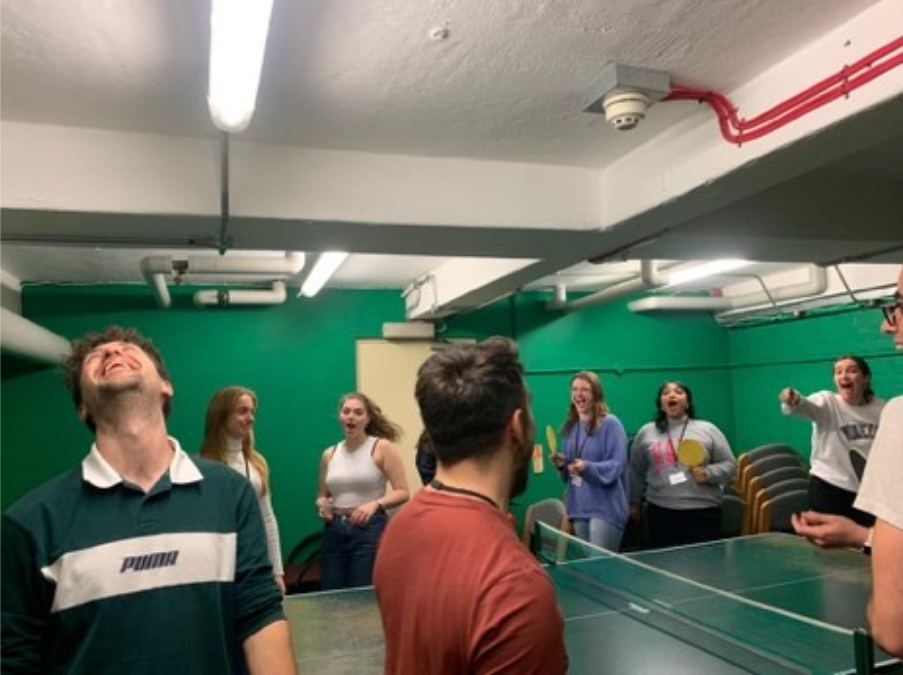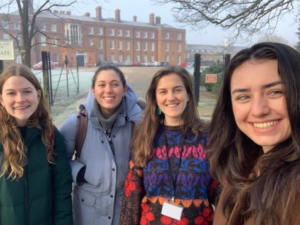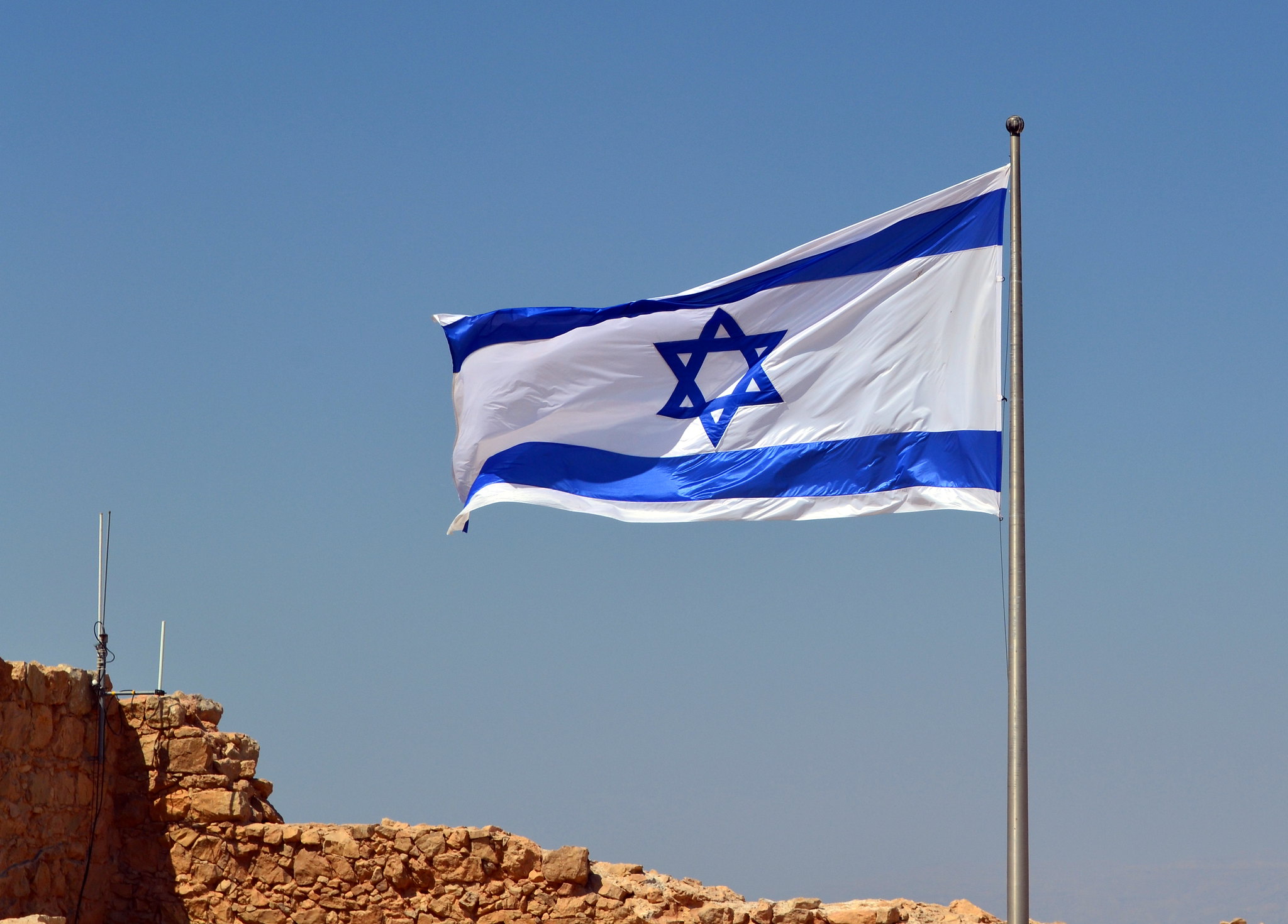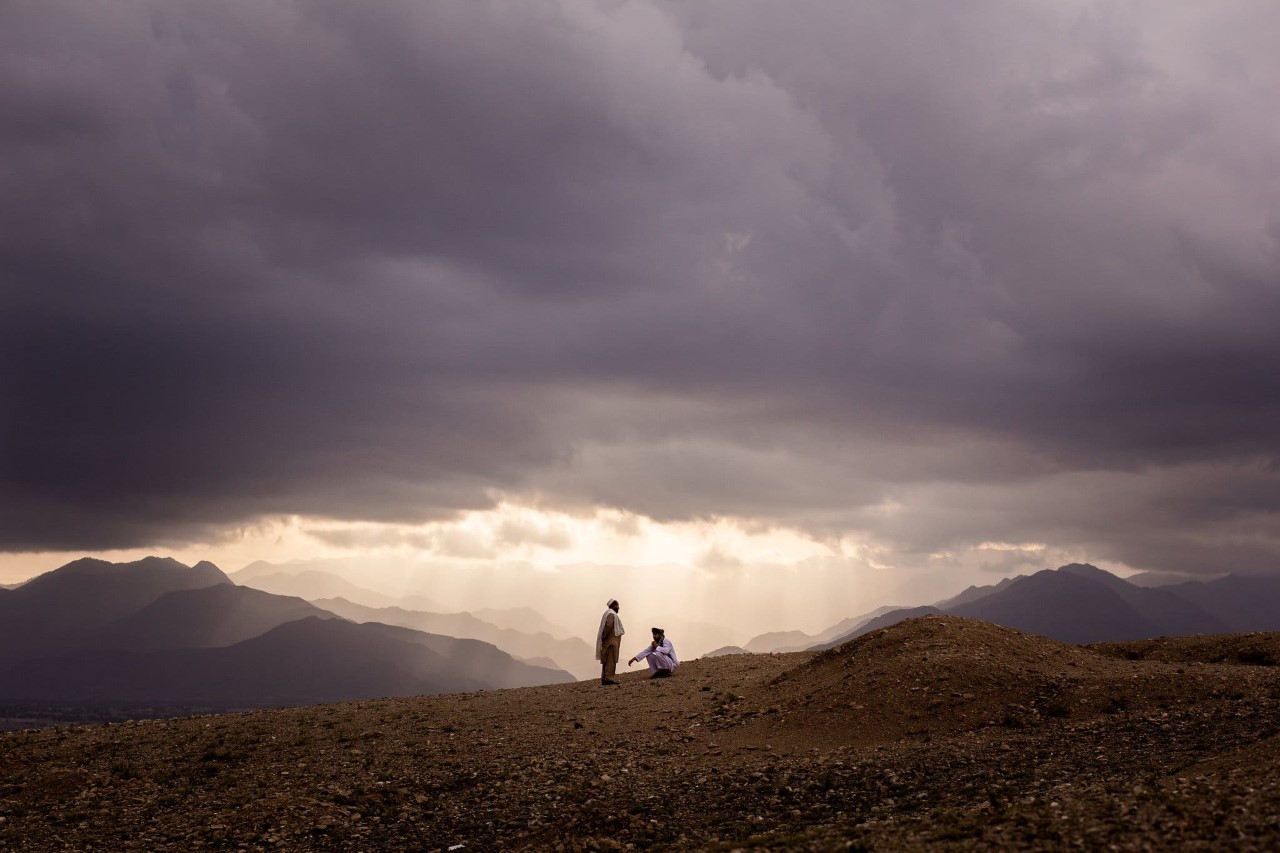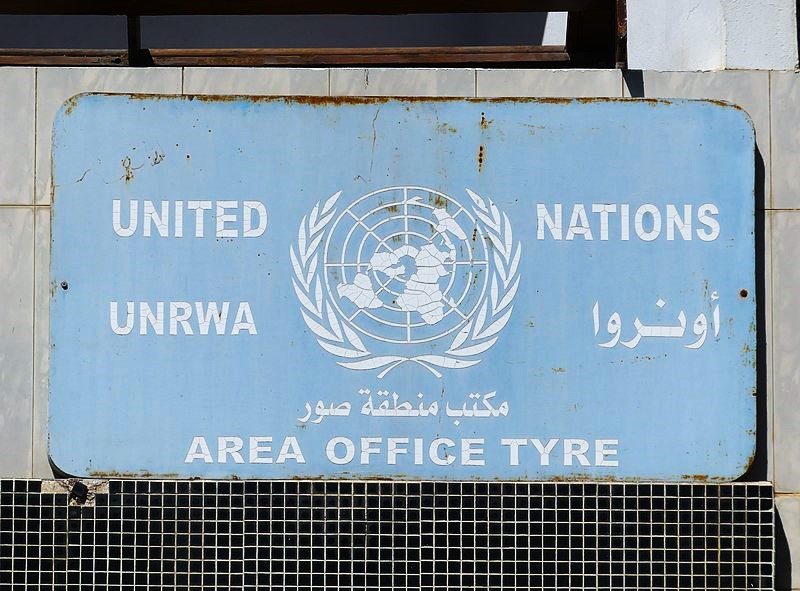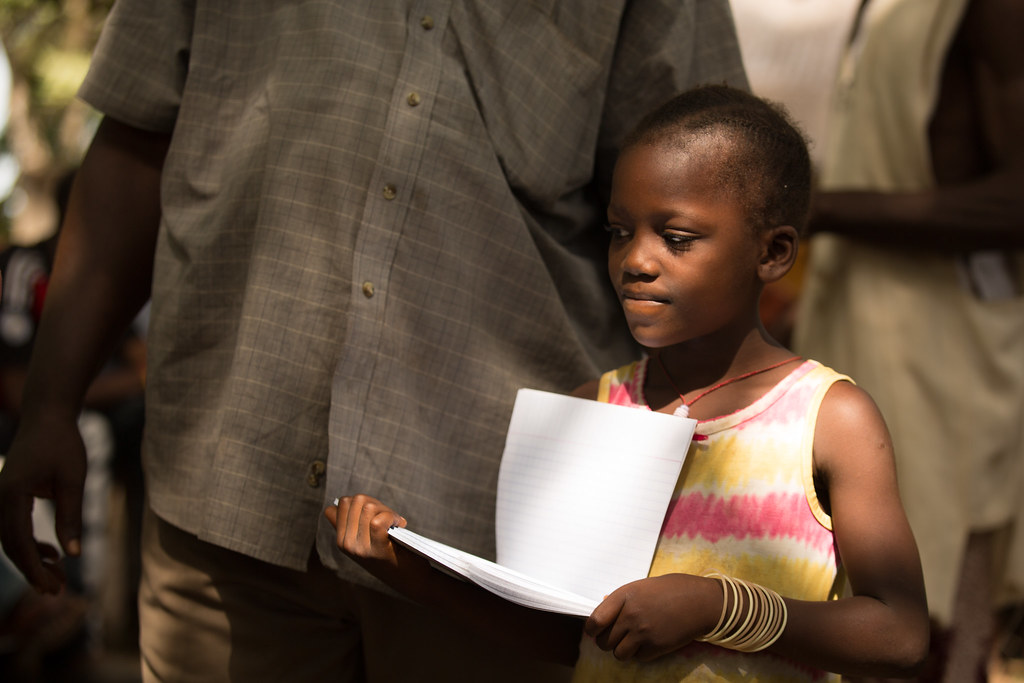After returning from holidays and finishing up summative exams, students from the MSc in International Development and Humanitarian Emergencies spent a weekend at Cumberland Lodge exploring humanitarian challenges through simulations. Rona Post and Grace Calder give insight to the students’ experiences.
Having finished most of our summative exams, students on the bus heading to Cumberland seemed charged and hyped for the weekend ahead. It felt like we were going on a school trip. Getting through London traffic took a long time, but we talked about our holidays and Cumberland expectations, including who we were going to share rooms with. On the way, several students whipped out their phones to share music and take photos of a beautiful sunset
It was dark when we arrived. Students stretched their legs and entered the lodge, to be met with a welcome reception. We went to our rooms, dropped our bags, and returned to the main area for dinner. We had the honour of being joined by Sir Mark Lowcock – Former United Nations Under-Secretary General for Humanitarian Affairs and Emergency Relief. We were given the opportunity to ask about Sir Mark Lowcock’s UN experience and his advice on working in the humanitarian field. Together with Dr. Stuart Gordon – Programme Director of the MSc International Development and Humanitarian Emergencies programme – we also discussed ethical implications of holding humanitarian-focused simulations in such a beautiful place as Cumberland Lodge. This discussion reminded us of the harsh reality humanitarianism deals with and it grounded our consciousness of the freedoms and opportunities we, as LSE students, are afforded.
After dinner, we moved to the building adjacent to Cumberland Lodge, where we spent the upcoming days engaging in simulations. First, Dr. Gordon gave Sir Mark Lowcock the floor to speak to us about his experience with how the UN Secretariat handled emergencies and what challenges they involved. Rona found Sir Mark Andrew Lowcock’s remarks on the Rohingya Crisis in 2017 thought-provoking, particularly his comments on how flexible and adaptable the response had to be respective to the evolving emergency context. Next, we were briefed on the first simulation: handling political dynamics of a multi-stakeholder negotiation on regional civil war-induced refugee movement and forced displacement. After the debrief, we all met in the bar for drinks. Students also went to the basement, played pool, foosball, ping-pong and blasted some music. Surely enough, games got intense and luckily, we were able to capture some of these ‘renaissance tragedy’ moments.

The next morning, after breakfast and a yoga session for some early risers, we started the simulation. Split into two ‘realities’, we were assigned different ‘stakeholder’ roles to be taken within the refugee crisis multi-stakeholder negotiation. Stakeholders sharing similar interests, like donor countries and/or institutions and developing partners, came together to discuss their shared and unshared visions. After deliberating, all ‘clustered’ stakeholders agreed upon a stance they would follow in the negotiations.
As expected, negotiations were tough, with different priorities, capacities and desired timelines and strategies, and refusals to come to agreements. State and local officials from the host country questioned donors’ assistance and demanded more help whilst donor countries struggled to fulfil these needs within their capacities set by their respective headquarters. Additionally, local NGOs and Civil Society Organisations threatened to go on strike as they felt their priorities were unheard and disregarded within negotiations. And perhaps most striking of all, refugee representatives barged in on a negotiation, demanding a response and seat at the negotiation table. One student – Perrine – made this demonstration exceptionally powerful with her remarkable acting, shouting “our voice counts, our voice counts”. Perrine, in her own words, described the experience as following: “this trip allowed us to put ourselves in an emergency situation, where refugees fleeing civil war were displaced. We, therefore, had to solve real problems that humanitarian actors are exposed to. It was a very pleasant stay, especially as Sir Mark Lowcock did us the honour of answering all our questions and sharing his experience as UN Under-Secretary General for the Humanitarian Affairs and Emergency Relief Coordinator.”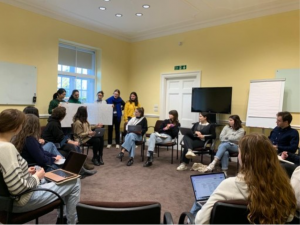
After lunch, the group was introduced to our second simulation in which we were tasked with planning the construction of a refugee camp in Windsor Great Park. The students were tasked with not only mapping out the camp but with requesting assistance from UN agencies, donor states and international NGOs to ensure that it serviced the needs of those arriving from a rapid onset crisis. To best understand the area in which the students would have to plan the camp, Dr. Gordon led a chilly walk around the beautiful park in which he regaled the students with many fascinating insights into the local flora and fauna, including some escapee parakeets. The students also got to see the deer population of the park up close and personal, as well as an incredible view of Windsor Castle.
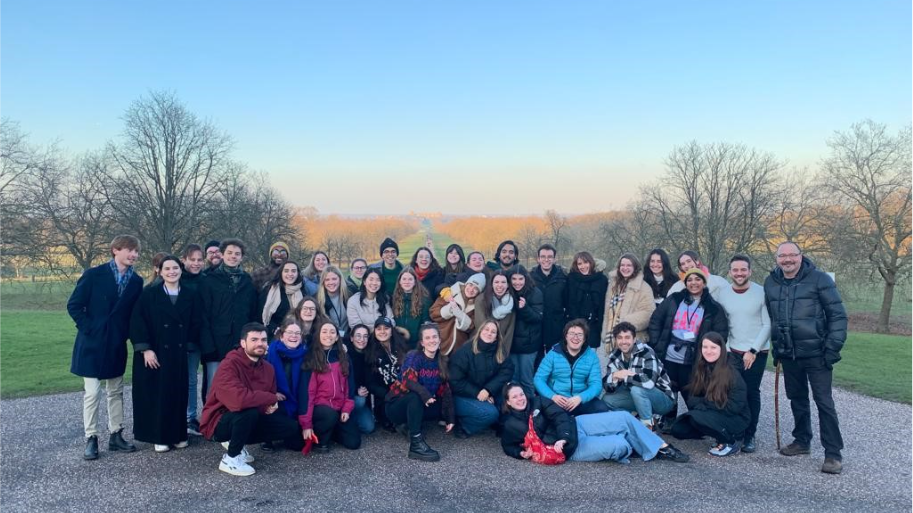
Next up, the students split into groups and began to design the refugee camp. This required nuanced planning of size, plot allocation, factoring in ongoing ethnic tensions and practical barriers, such as access to water supply. The simulation gave the groups invaluable insight into the vast logistical challenge that planning camps poses. Additionally, as the groups devised their plans, they had to submit support requests which could be accepted, denied, or challenged by a variety of local, state, and international actors. Some groups were given extra challenges, such as infection outbreaks, which challenged their capacity. This demonstrated to students the various challenges that relief agencies face when attempting to support displaced populations.
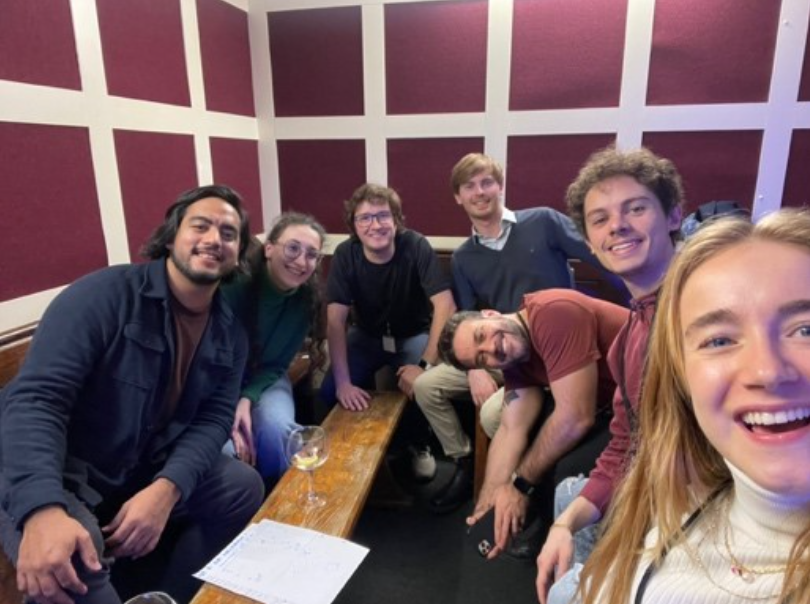 Aside from the simulations, other highlights of the weekend included the incredible, and very high-stakes pub quiz that Jess and Beth created for the group as well, as some very questionable displays of karaoke ‘talent’. Overall, the weekend at Cumberland Lodge was an amazing highlight of our time at the LSE. Not only did the students gain incredible insight into the inner workings of co-ordination in response to sudden onset population displacement scenarios, but the weekend was also great fun and was the perfect opportunity to meet other students and learn from each other.
Aside from the simulations, other highlights of the weekend included the incredible, and very high-stakes pub quiz that Jess and Beth created for the group as well, as some very questionable displays of karaoke ‘talent’. Overall, the weekend at Cumberland Lodge was an amazing highlight of our time at the LSE. Not only did the students gain incredible insight into the inner workings of co-ordination in response to sudden onset population displacement scenarios, but the weekend was also great fun and was the perfect opportunity to meet other students and learn from each other.
The views expressed in this post are those of the author and in no way reflect those of the International Development LSE blog or the London School of Economics and Political Science.
Photos: Rona Post, Grace Calder and Anna D’Alton.


